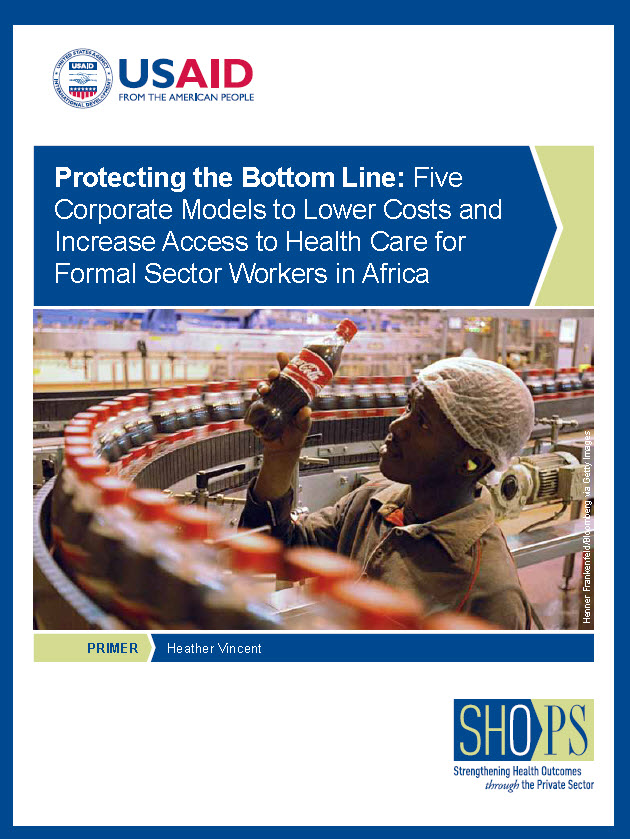Protecting the Bottom Line: Five Corporate Models to Lower Costs and Increase Access to Health Care for Formal Sector Workers in Africa
This primer informs donors and corporations of all sizes and origins about five innovative models used by multinational corporations to lower costs and increase access to health care for formal sector employees. In an age of declining donor funds, private formal sector actors such as corporations are becoming increasingly important health care financiers. By providing employees (especially employees in lower-income brackets) with efficient, affordable health care, corporations can take a proactive stance to protect their financial bottom line by decreasing absenteeism and providing care for employees and their dependents. The five models described here are corporate-owned hospitals; on-site clinics/workplace programs; nongovernmental organization partnerships; reimbursement schemes; and health insurance.
SHOPS Project
